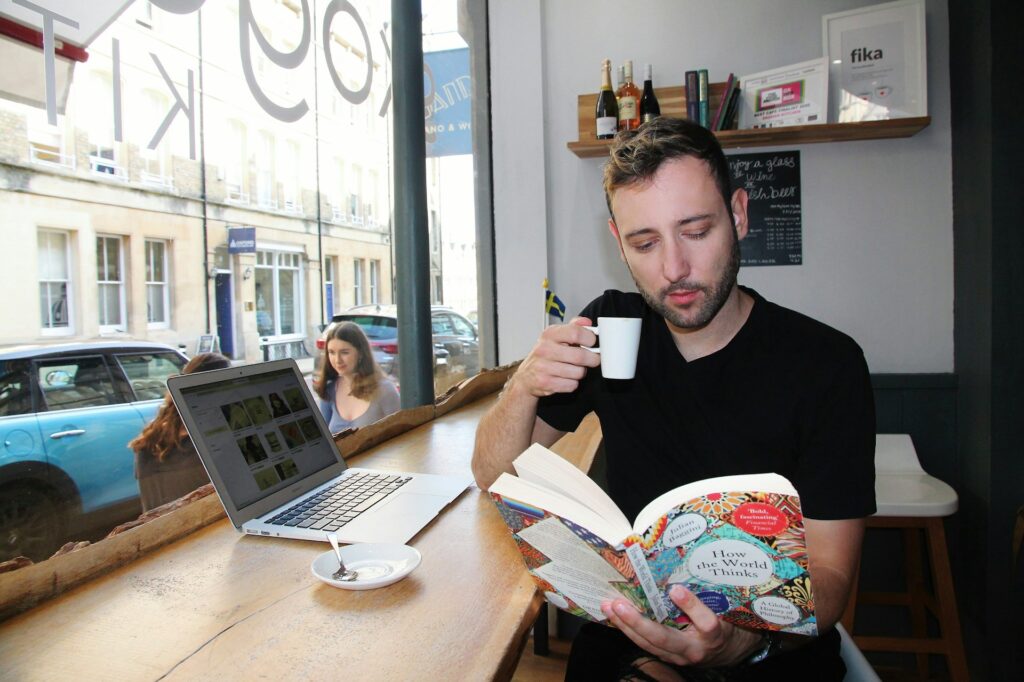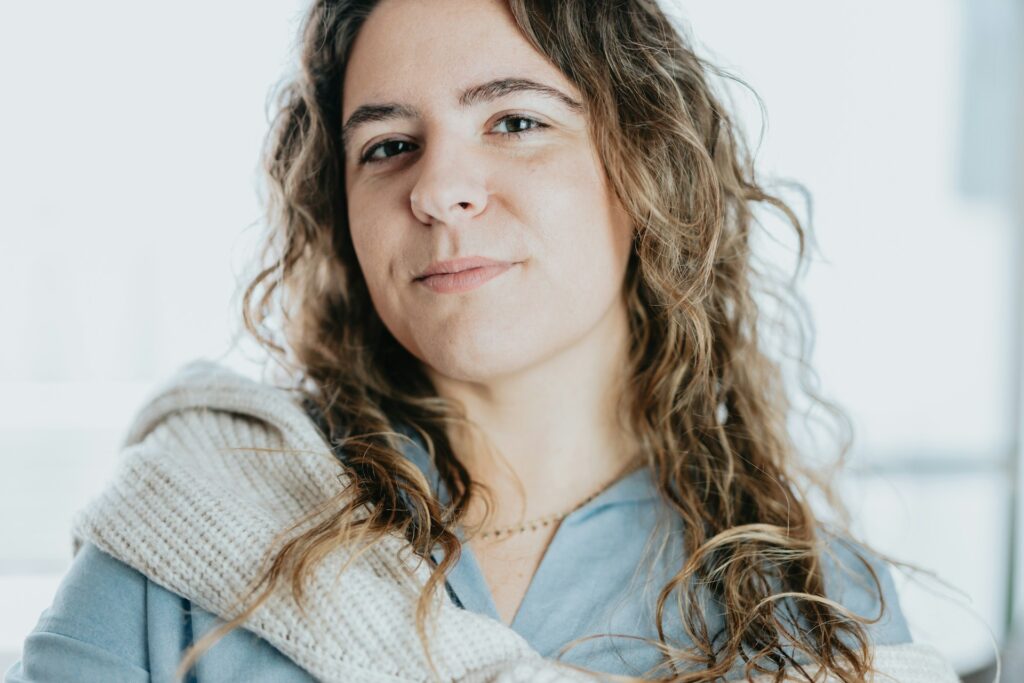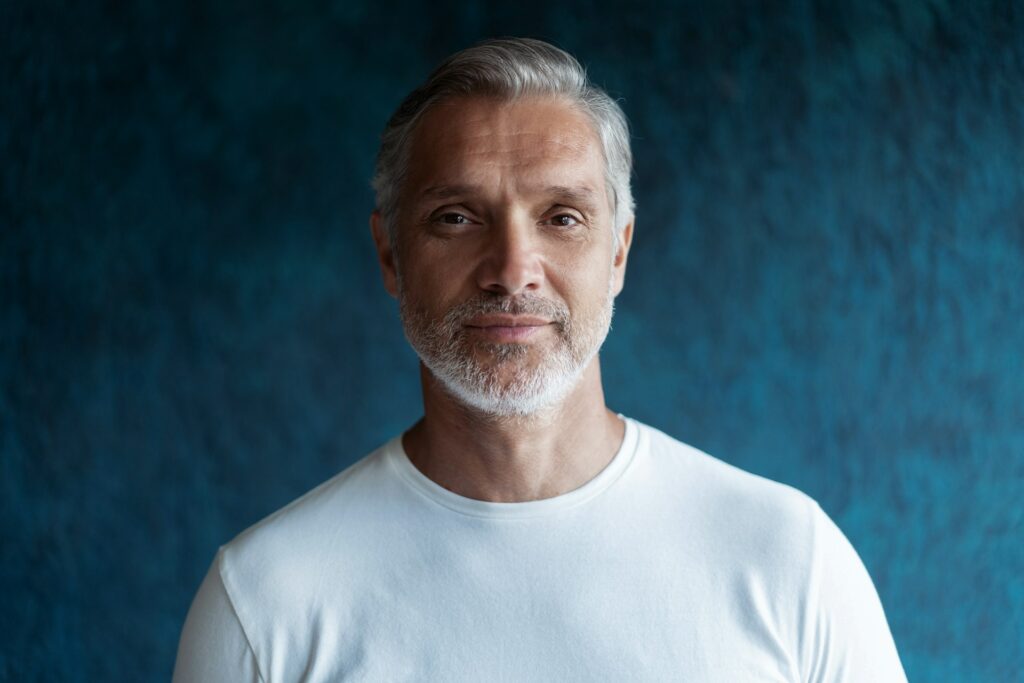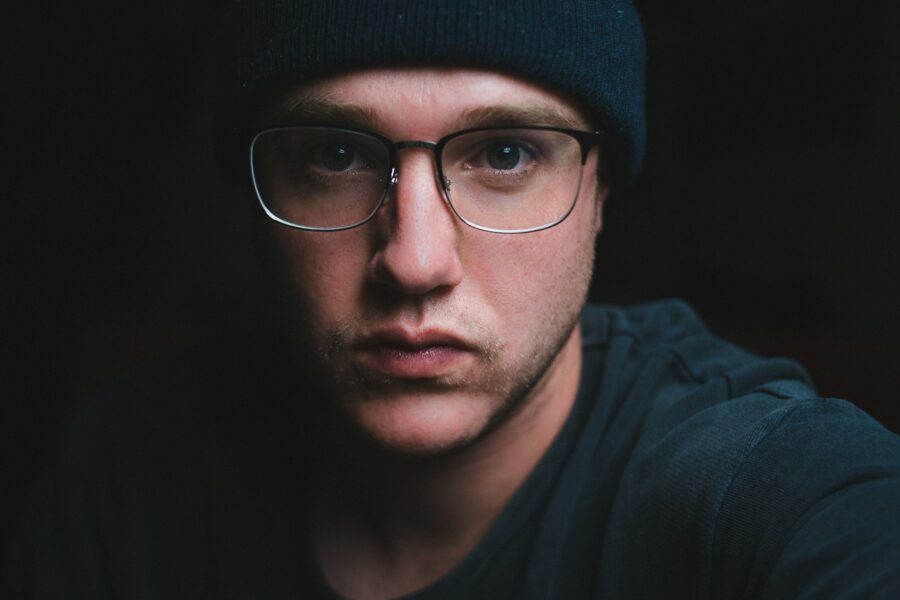Self-help has its place—a good book or podcast can definitely inspire new ways of thinking.

That being said, sometimes, the self-improvement cycle becomes a comfort zone of its own—a way to feel like you’re growing without actually making hard, real-life changes. If you find yourself consuming all the right content but still feeling stuck, it might be time to ask whether you’re doing the work or just circling around it.
1. Stop using learning as a substitute for doing.

It’s easy to convince yourself that reading another book or watching another mindset video counts as progress, and in some ways, it is. The thing is, if you never apply what you’re learning, it becomes a delay tactic instead of a growth tool. Information is only powerful if it changes how you live, not just how you think. At some point, you have to shut the book and do something uncomfortable. That’s where growth actually begins.
2. Be honest about what you’re avoiding.

Journaling, meditating, and setting intentions are great, but not if they’re keeping you from facing something concrete. Avoidance dressed up as introspection still keeps you stuck. Ask yourself, “What’s one thing I keep skipping in favour of ‘working on myself’?” Whether it’s a tough conversation, a career risk, or a personal boundary, that’s likely where the real work is hiding.
3. Notice when you’re over-identifying with healing.

Healing is important, but it’s not a personality. You don’t have to constantly explain your wounds or make everything in your life about your growth process. Eventually, you’re allowed to just live. If your identity is wrapped entirely around being on a “journey,” you might be using it as a reason not to show up fully in your relationships, career, or goals. Growth should support your life, not replace it.
4. Quit chasing the perfect morning routine.

You don’t need to wake up at five, meditate for 20 minutes, drink celery juice, and journal before sunrise to be a person who’s healing. Routines help, but they’re not the destination—they’re just structure. If you spend more time trying to optimise your habits than living your life, it might be time to simplify. Real change isn’t found in obsessing over the perfect formula. It’s found in how you respond when things don’t go to plan.
5. Stop treating feelings like the final product.

It’s helpful to understand your emotions. But recognising that you have fear, shame, or anger isn’t the same as moving through it. Naming a feeling is the starting line—not the win. Once you know how you feel, the next step is to act in alignment with what you want, despite the feeling. That’s where real transformation starts. Otherwise, you’re just narrating your stuckness.
6. Don’t use language to mask your behaviour.

Knowing all the right words—boundaries, attachment style, triggers, energy—can make you sound self-aware. But if you’re using those terms to avoid accountability or shut people down, it’s not growth. It’s deflection. Real healing shows up in how you treat other people when you’re stressed, how you take responsibility without spiralling, and how you act when no one’s validating you. That’s the uncomfortable truth self-help language can sometimes hide.
7. Stop romanticising your potential.

Having a vision for who you want to become can be motivating, but it can also become a trap. If you’re always dreaming about your “highest self” but never making moves toward it, you’re stuck in fantasy, not growth. Your potential means nothing if it’s never translated into reality. Start showing up as that future version now, in small, imperfect ways. It won’t be glamorous, but it will be real.
8. Be wary of comfort disguised as spirituality.

Spirituality can be grounding and empowering, but it can also become a hiding place when it’s used to bypass conflict, avoid difficult emotions, or stay in a constant state of “surrender” instead of action. If your beliefs are keeping you passive, disconnected, or avoidant, it might be time to ask whether they’re helping you grow—or just keeping you from dealing with what’s right in front of you.
9. Reflect less. Decide more.

Over-reflection can become its own form of paralysis. The constant questioning, analysing, and journaling might feel productive, but if you’re still avoiding clear decisions, you’re just looping through doubt. Growth often comes from movement, not clarity. Decide something. Try it. Get feedback from life. Then adjust. Waiting to feel completely ready is one of the most subtle ways to stay exactly where you are.
10. Notice how your ‘work’ affects your relationships.

If your healing process is making you more self-involved, harder to reach, or overly rigid, it’s worth checking in. The goal isn’t to become so boundaried and aware that you lose warmth and connection. Growth should make you easier to love, not harder. It should help you hold space for other people, not expect everyone to revolve around your process. If it’s isolating you, something’s out of balance.
11. Don’t confuse self-awareness with change.

You can understand your triggers inside and out. You can know exactly why you respond a certain way. But unless you’re actively practising new responses, that insight won’t take you very far. Awareness is the first step, sure, but it’s not the finish line. Real change shows up in your habits, your choices, and the way you show up in the world, especially when it’s inconvenient.
12. Don’t wait until you feel ready to take action.

Growth doesn’t usually come with a wave of motivation or clarity. It often starts with discomfort, confusion, or a sense that you’re not quite equipped yet. That’s okay. Waiting until you feel confident is one of the most common ways people delay the real work. You build readiness by doing, not by thinking. Take the step, even if your voice shakes a bit when you do it.
13. Remember the goal is to live, not just improve.

Self-help isn’t a full-time job. The end goal isn’t to be perfectly healed, endlessly productive, or always at peace. It’s to live a real, textured, meaningful life, even when it’s messy. Don’t lose yourself trying to become your best self. Sometimes the most healing thing you can do is laugh, make a mess, connect deeply, or rest without guilt. Growth matters, but living matters more.


